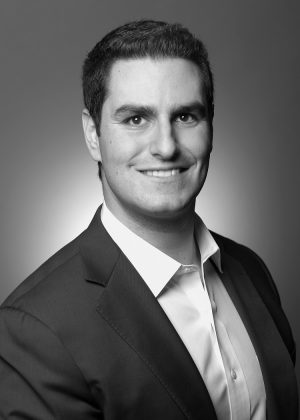 Today we are going to explore why Cravath is (and remains), well, Cravath? Well, not literally.
Today we are going to explore why Cravath is (and remains), well, Cravath? Well, not literally.
Literally, we will explore why the most prestigious Biglaw firms are (and remain) the most prestigious Biglaw firms. And the fact that you knew that by, “Cravath,” I meant “the best of the best,” is telling.
This stickiness has been well documented by master of legal economics, Bruce MacEwen. Bruce’s latest book Tomorrowland (which simply blew me away), argues that there is an exhausting paradox to law firm prestige:

How The Law Office Of Stephen L. Thomas Jr. Reclaimed Valuable Hours And Strengthened Client Care With 8am
Founded in 2017, the Baltimore-based Law Office of Stephen L. Thomas Jr. unified case management, communication, and payments with 8am—saving 10–20 hours a week for clients, trials, and growth.
The firms with the strongest brand names are those deemed to provide the highest quality – and the way you can be assured they’re of exceptional quality is because they have the strongest brands.
In Part One of this two-part story, we define prestige as it applies to Biglaw (versus the rest of corporate America) and walk through Bruce’s argument for its unique stickiness.
In Part Two, I’m going to sit down with Itai Gurari, whose legal research platform, Judicata, seeks to use high technology to cut through the paradox and tell us, once and for all, which Biglaw firm is best.
Eventually, through further explorations in this column, I hope to be able to provide a satisfying answer to your ultimate question: “can my firm ever be Cravath?” If you are too lazy to read on, my quick answer, is probably not today, but maybe in Tomorrowland.

How Legisway Helps In-House Teams Manage All Legal Matters In One Trusted Place
Operate with AI driven insights, legal intake, unified content and modular scalability to transform efficiency and clarity.
What is Biglaw Prestige?
I Don’t Care to Belong to Any Club That Would Have Me as A Member — Groucho Marx
Mmmmm, delicious prestige.
That manna from heaven we lawyers feast upon to remind ourselves of our self-worth and value. When one works on an all-night doc review, and feels emptiness inside, nothing nourishes the soul like the knowledge of your AmLaw ranking — or profits per partner!
The Oxford defines prestige as, “widespread respect and admiration felt for someone or something on the basis of a perception of their achievements or quality, but I’m going to define it as the magical elixir that makes something feel valuable, above and beyond its tangible value.
At Biglaw, the physical manifestations of prestige are everywhere: dripping from the art on the walls; reflected in the off-white paper and barely-raised lettering on business cards, and broadcast globally through the glossy website. But where does this magical elixir come from? Certainly not from these physical objects and electronic ephemera.
The answer is… wait for it… it depends.
In other industries, prestige flows from smart risk-taking and ingenuity. It’s the rebels who hoard the prestige — the newcomers, the entrepreneurs, and the risk-takers. Ask yourself, is working at Microsoft as cool as working at the newest venture-backed AI startup? (Mom, that question was not for you!). Which of the two jobs would you be more likely to jump ship to, if you had to take a pay cut?
The modern business world doles out prestige for acts of disruption, trendy tee-shirts, and daytime nap pods. In law, prestige flows from polar opposite drivers.
We lawyers value precedent, traditional suits, and not sleeping much at all. Jokes aside, we love doing what others have done before us, for centuries. We do it because law schools teach us to, because courts require it, and because it works. The best among us leverage established work product and brandish the history and stability of our firm names. We heap pride on those joining the ranks of past legal leaders.
As someone who has worked at, and invested in, half a dozen legal businesses (and technology companies), I have had to have many tough conversations with lawyer-investors who see negative news as a harbinger of inevitable decline. I must remind them that unlike the Biglaw space, what a company is today, is not necessarily what it will become tomorrow.
Why Legal Prestige is Sticky
In the Absence of Facts, The Best Predictor of the Weather Tomorrow is the Weather Today — Tomorrowland
MacEwen’s Tomorrowland walks us through the unique stickiness of legal prestige.
“[T]he ranks of the marquee players,” in Biglaw, including the “New York white shoe elite” and “London’s Magic Circle” have seen only incremental — not seismic — change. And this is in an age where virtually every other industry exists in a constant state of flux. So why are law firms different?
According to MacEwen, elite law firms essentially have two critical functions: grow demand (attracting sophisticated clients) and provide supply (attracting top-tier talent to serve those clients). Most important, to do either, “you need to already have a reputation as an elite firm.”
Want proof? MacEwen contrasts two tables showing the top-10 firms from the Vault prestige rankings from 2006 and 2017 respectively.
| 1 | Wachtell | Cravath |
| 2 | Cravath | Wachtell |
| 3 | Sullivan & Cromwell | Skadden |
| 4 | Skadden | Sullivan & Cromwell |
| 5 | Davis Polk | Davis Polk |
| 6 | Simpson Thatcher | Simpson Thatcher |
| 7 | Latham | Latham |
| 8 | Cleary | Kirkland |
| 9 | Weil Gotshal | Cleary |
| 10 | Covington | Gibson Dunn |
Then, he compares the Biglaw list to Global Brands generally (see Interbrands):
| 1 | Coca-Cola | Apple |
| 2 | Microsoft | |
| 3 | IBM | Coca-Cola |
| 4 | GE | Microsoft |
| 5 | Intel | Toyota |
| 6 | Nokia | IBM |
| 7 | Toyota | Samsung |
| 8 | Disney | Amazon |
| 9 | McDonald’s | Mercedes-Benz |
| 10 | Mercedes-Benz | GE |
MacEwen argues, persuasively, the difference between the legal and non-legal lists are vast and meaningful:
To be sure, six [non-legal] brands make both lists, but four change. Intel, Nokia, Disney and McDonald’s fall away and Apple, Google, Samsung and Amazon appear. Perhaps more surprising is where the new 2016 names were in 2006: Samsung was 20th, Google 24th, Apple 39th, and Amazon 65th. Imagine a law firm in the gang of 60-69 as of 2006 vaulting into the top ten a decade later: Inconceivable.
Why is it “inconceivable” that a firm ranked 60-69 would vault into the top ten? Because “to get into the inner circle, you need to be in the inner circle.”
So now I ask you, dear readers, does this make you mad? It should. In theory, someone with legal, business and management skills should be able to go out there, do great work, build a great team and change the law firm industry in one generation (like Jeff Bezos and Mark Zuckerberg have done for, books, media, retail, and, well… most industries!).
But the facts on the ground say this isn’t realistic over the period of time one can expect to practice (though we are living longer than ever!). Is there any potential for relief? Can the next Biglaw Bezos have any realistic hope to best Cravath at their well-played game?
Preview of Part II: Technology Upends the Status Quo? Judicata’s Trying
To a man with a hammer, everything looks like a nail. — Mark Twain
Tech, tech, tech. So I have been thinking for a while about how technology could provide an objective measure of legal work-quality, which could make the law firm industry more dynamic — and upend the stickiness of law firm prestige.
Well, Judicata, is working to do just that. To whet your appetite, enjoy a preview of next month’s talk with Judicata CEO, Itai Gurari:
I see [law firm prestige] as a parallel to Newton’s first law of motion: a body in motion will remain in motion unless it is acted upon by an external force.
A prestigious law firm will remain prestigious unless it is acted upon by an external force. A law firm is prestigious today because it was prestigious last year. It was prestigious last year because it was prestigious the year before.
But richer data and more advanced technology are splintering that continuity. Just as we’ve seen with other fields, I think objectivity is taking hold, and that shift will lead to a changing of the guard.
More on this and Judicata in my next alt.legal! Also, I have new contact info, so if you have alt.legal story ideas, check out my new footer below.

Joe Borstein, Esq. is Chief Revenue Officer for NAM (National Arbitration and Mediation), a leading provider of arbitration and mediation services, with over 2,500 neutrals across the country. At NAM, Joe is charged with developing, implementing and overseeing the strategic goals for the company. He leads the company’s business development initiatives and related customer service operations that are designed to provide law firms and corporate clients with a fair, fast and reasonably priced alternative to the court system.
He is a frequent speaker and writer on global trends in the legal industry and, specifically, how law firms are leveraging those trends to become more profitable. If you are interested in entrepreneurship and the delivery of legal services, or alternative dispute resolution, please reach out to Joe directly at [email protected].